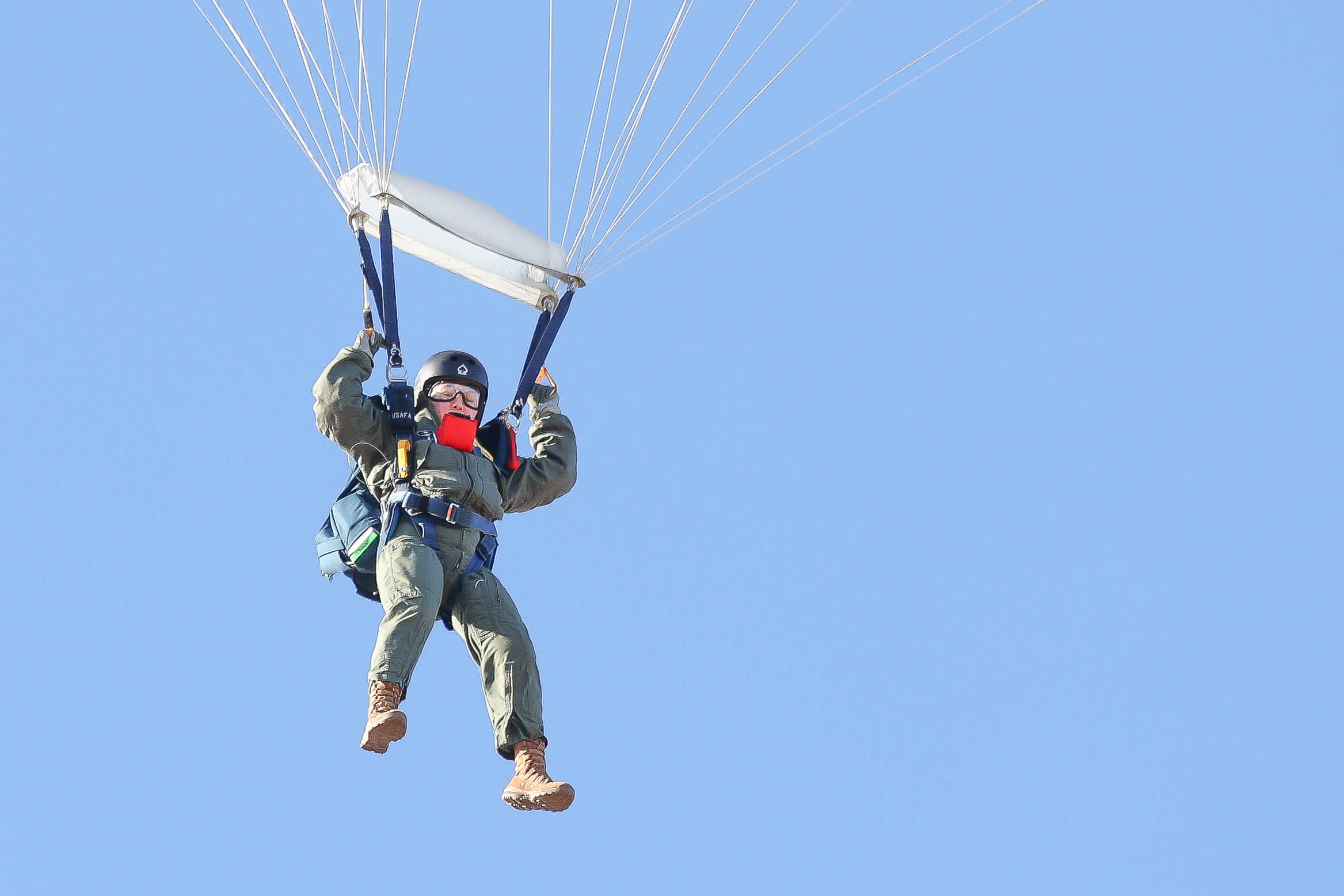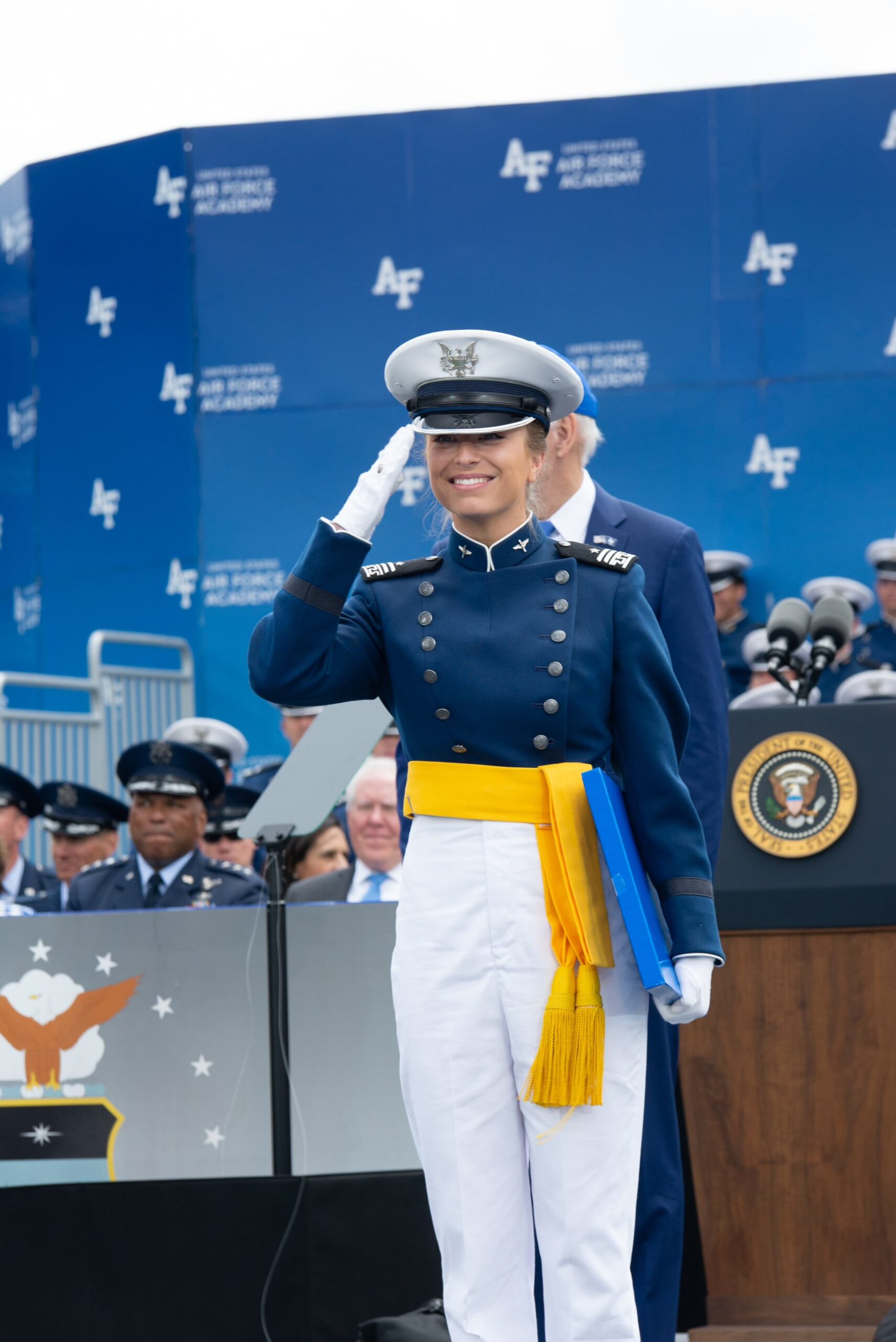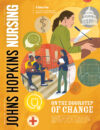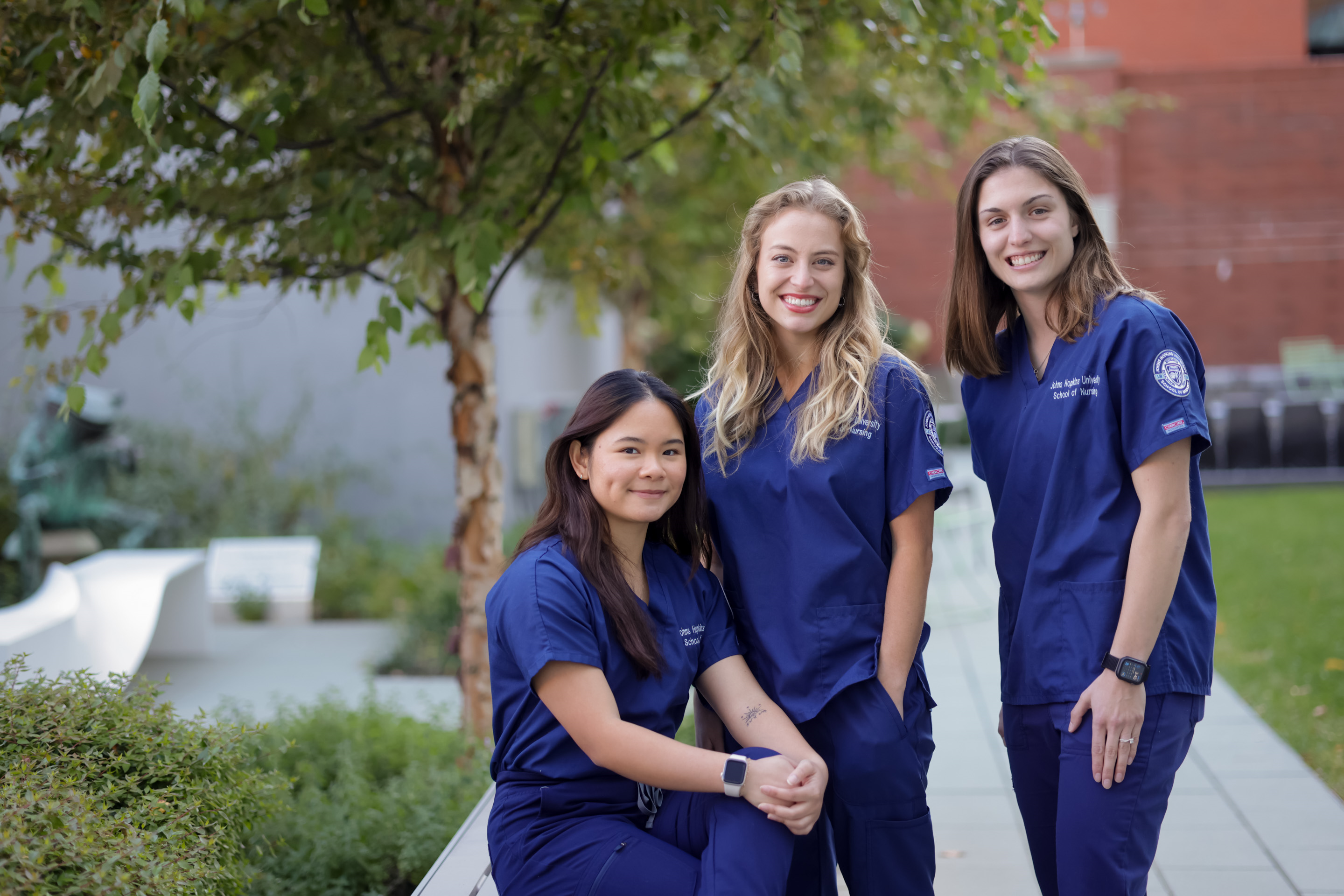Top-flight Air Force Academy grads ready to soar in Master’s Entry program.
Somewhere around 50 percent of Air Force Academy graduates become pilots, figures Francesca Moore, second lieutenant in the U.S. Air Force. Each year, three cadets are offered the chance to become top-tier nurses.
Moore and classmates Xandria Roquid and Allyson Stauffer, also second lieutenants, liked those odds. This school year, all three are off to a flying start in the Master’s (Entry into Nursing) program at the Johns Hopkins School of Nursing. And if the Air Force has anything to say about it—as the funder of their education, of course it does—Roquid, Moore, and Stauffer will be helping to lead health care in the military branch for years to come. Where that happens is mostly up to the Air Force, but East Baltimore seemed like a good enough place to start.

In fact, there were five nursing programs to choose from across the nation. “I think I can speak for all of us that Johns Hopkins was clearly the top option,” reports Stauffer. “We talked to people who were years ahead of us at the academy and they gave high praise as well.”
Though all felt compelled toward military service, none of the three had joined the academy for the “Air” part—the idea of becoming a pilot. Or, really, had ideas of becoming a nurse. Though in Stauffer’s case, at least, there were hints growing up in Harrisburg PA. “My mom’s a nurse practitioner, so I grew up shadowing her … whether I wanted to or not.” Dad was in the Army, and that rubbed off as well. “I knew from an early age that I wanted to serve.” Today, Stauffer dreams of working in an intensive care unit, perhaps in anesthesia.
For ease, Roquid still calls Colorado her home base. “I was born in the Philippines, and my father is in the military currently—they’re living in England right now—so I’ve kind of lived all over.” With a grandfather in the Navy and an aunt and uncle in the Air Force, the path was also kind of laid out for Roquid. “I would like to do 20 [years] in the Air Force, so I wasn’t really thinking about the time commitment.” (Each will “pay back” the Air Force with a minimum of eight years of service.) But her eventual goals include flight nursing and overseas humanitarian aid work, having witnessed the need in her many travels. “That’s something that I would like to fulfill in this lifetime.”

Moore, from Nashville TN, isn’t limiting her choices, still looking around at and soaking up intel on the wildly divergent opportunities the nursing business has to offer. Though equally drawn to the idea of service through health care and now nursing, she’s a bit later to it than the others. She does know that being stationed internationally sounds cool.
Once they earn their wings as nurses, Moore, Roquid, and Stauffer will head back to the Air Force—the eight-year clock will start ticking upon graduation. “No … thankfully!” Stauffer exclaims at the idea that after a few semesters away from stringent military training, the trio might face some sort of “refresher” basic training. They’ll return to the grid, if not the grind, via classes in technical school to ease the transition as Air Force nurses. Again, the military has the final word on the location.

Wherever they land, it’s clear that all three will be tremendously qualified to lead. Nursing and the Air Force are two very different worlds, they explain, and leadership doesn’t automatically translate. But hard-earned self-assurance and the ability to communicate sure do.
“I can already see the communication skills that my peers might not yet have,” explains Moore of a smooth transition so far. “It’s the confidence—it feels natural.” Stauffer adds a well-established sense of empathy to the toolkit provided by the Air Force Academy. It means that “here at Johns Hopkins, I feel like we can really practice leveraging other people’s strengths to work more efficiently and effectively.” And Roquid points to the diversity of ages, backgrounds, fields of expertise, and even previous careers of students and faculty at JHSON as a mind expander and a great building block for leadership as well as growing as a teammate.
The Air Force is counting the days …
— Steve St. Angelo

